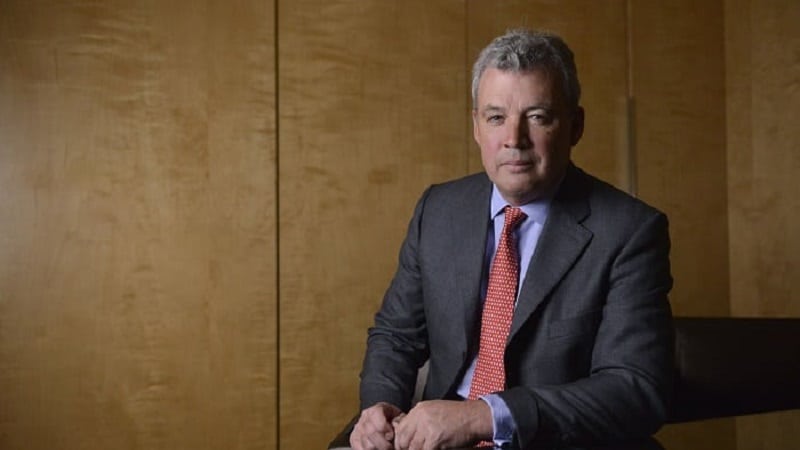River and Mercantile’s derivatives business has provided a boon to the fund group during the coronavirus crisis, helping it achieve positive net flows as clients shunned equities and moved into hedging strategies.
On Wednesday the fund group provided a detailed snapshot of how the business fared over the three months to 31 March 2020 in an unusually lengthy trading update.
It said total assets in the quarter fell by 4.3% to £40.5 billion, after factoring in negative investment performance of £2.25 billion or 5.3% of opening assets under management and notional under management (AUM/NUM).
Clients pulled money from both its equity and liquid alternatives funds which ended the period with net outflows of £386m and £377m respectively.
“We have seen unprecedented market volatility over the last three weeks as the world has come to terms with the fast evolving Covid-19 crisis,” said group chief executive James Barham (pictured).
“Volatility closed above levels last seen in the global financial crisis over 12 years ago and equity markets along with a range of other asset classes have seen dramatic falls. As events have unfolded, it has become increasingly likely that a global economic downturn is now almost a certainty and that large parts of the global economy will enter recession this year.”
Derivatives drive new business
Despite this the fund group was able to deliver net inflows of £434m thanks in large part to its derivatives business which saw a spike in demand.
River and Mercantile’s derivatives funds attracted £1bn in gross sales and a further £326m from net rebalancing and transfers as the coronavirus ravaged markets, resulting in £545m of positive flows.
Its fiduciary business also ended the quarter with net positive flows attracting £625m.
Group chief executive James Barham said the performance of the group’s derivatives business was “pleasing” and the result of clients increasing hedging strategies in both interest rates and equities via its structured equity and liability-driven investing products.
He said that the firm’s business model was more “sustainable” than rival firms due to the fact its revenues are less exposed to equity markets.
“Approximately 60% of our revenues are not exposed to equity market beta and therefore while the equity markets will directly affect the equity solutions business and the equity investment portfolio in fiduciary management (although this was reduced significantly in the early stages of the crisis), the revenue generated in the derivative solutions business, the bond portfolios in the fiduciary management and our advisory revenues are not affected by equity market beta.”
River and Mercantile vows to not scrap dividend
In a departure from other businesses, Barham said River and Mercantile had no plans to scrap or delay dividend payments.
“Whilst we are conscious that a number of businesses have taken the decision to cancel/postpone or defer their dividends as a result of the extreme market volatility, we are a cash generative business, have a strong balance sheet and therefore it remains our intention to continue to pay our dividends to shareholders,” Barham said.
“Many of our shareholders manage assets on behalf of income seeking investors and therefore cashflow for these investors is particularly critical at times such as these.”
The fund group’s first interim dividend payment of 4.39p per share will go ahead as planned and be paid out to investors on 16 April 2020.









